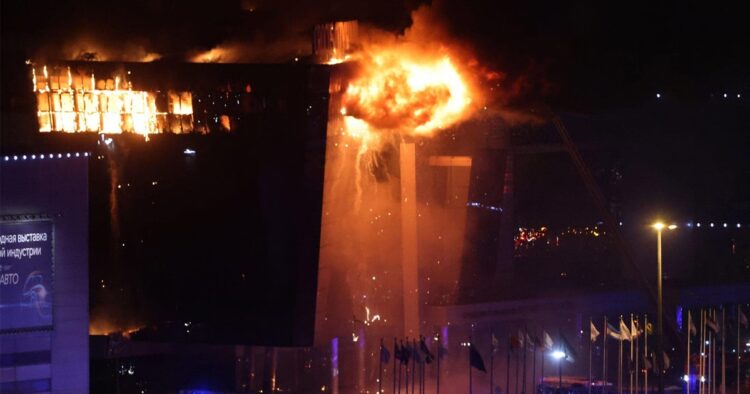A horrific terrorist attack in Moscow has left at least 93 people dead and around 145 wounded, marking the deadliest assault in the Russian capital in over two decades. Gunmen armed with automatic weapons stormed a rock concert at the Crocus City Hall on the outskirts of Moscow, causing chaos and destruction. The assailants escaped by car as fire engulfed the venue, leading to a partial collapse of the roof.
Despite warnings of a potential terrorist threat, Russian President Vladimir Putin had dismissed these concerns just days before the attack. He has yet to appear or comment publicly on the devastating incident. The Islamic State claimed responsibility for the attack, according to SITE, an organization tracking jihadist activities, although this claim has not been independently verified.
The attack has stunned Russia, with the death toll expected to rise as authorities continue their investigations. It is the worst act of terrorism in Moscow since 2002 when Chechen separatists seized hostages at the Nord-Ost theater. The tragedy underscores the persistent threat of terrorism in Russia, despite efforts to combat extremism.
Tensions have escalated between Russia and the West following the attack, as questions arise about the adequacy of security measures and the handling of intelligence warnings. The US Embassy in Moscow had issued a public warning about potential terrorist plots targeting large gatherings in the city, including concerts. While the US government shared this information with Russian authorities, the attack still occurred, raising concerns about intelligence sharing and cooperation.
The timing of the attack is particularly significant, coming just days after Putin secured his fifth term as president in a landslide victory. The assault has cast a shadow over his leadership and raised doubts about the effectiveness of his security policies. Authorities have tightened security across the country, but questions remain about the government’s ability to prevent future attacks.
The attack also highlights the ongoing conflict between Russia and Ukraine, with some speculating about possible Ukrainian involvement. However, both Ukrainian officials and experts dismiss these claims as baseless, attributing the attack to internal security challenges within Russia. The Kremlin’s response to the attack could further escalate tensions in the region, complicating efforts to resolve the conflict in Ukraine.
As Moscow grapples with the aftermath of the deadly assault, the international community watches closely, wary of the implications for regional stability and security. The attack serves as a grim reminder of the persistent threat of terrorism and the challenges facing governments in combating extremism. In the wake of this tragedy, questions abound about the effectiveness of counterterrorism strategies and the need for greater cooperation among nations to address this global menace.

















Comments